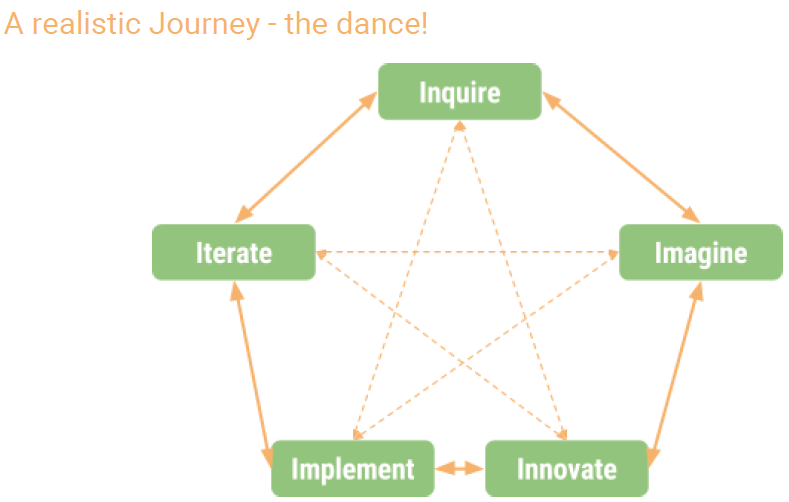A Coaching Model Created by Inês Paler
(Life Coach, SWITZERLAND)

Introduction
This model is based on a appreciative inquiry approach. The goal is to have a lightweight, adaptable framework where the coaching relationship is based on a positive approach of exploration, growth and fulfilment.
In my experience as a coach and coachee, there’s a different quality to our approach and more energy when we look at life with a positive attitude, no matter how hard and complex things look at any given moment. Having a sense of hope and a curiosity to find what’s working for us, what are the gifts and opportunities laying can be a great support in living the life we want to live.
To provide structure and accountability, this model offers a way to bring in and take that positive attitude to the coaching process.
For a long time it had seemed to me that life was about to begin real life. But there was always some obstacle in the way. Something to be got through first, some unfinished business, time still to be served, a debt to be paid, then life would begin. At last it dawned upon me that these obstacles were my life. –Fr. Alfred
The Penta i model
Application The model is distributed into five different phases that have a flow guiding the coachee from one to the next.
Having said that, life, people, awareness change and all of that can invite the coachee to dance between the different phases, bringing something new at each step, at their own rhythm.
Also, has a new chapter or adventure comes to a point of plenitude or equilibrium, the dancer my feel ready to take on a new aspect of his or her life to bring on the dance floor and start again, re-applying this model. This would then mean the Penta I would be applied in a cycle.

Description
Inquire
In this phase, the coachee is invited to explore the current reality, being mindful of what are the things that are working well, that bring well being and fulfillment. The idea is to raise awareness on what their world looks like, inside and outside of their beings.
As a part of this exploratory phase, the main values shall be also brought to the surface. What does the person care about, what drives them, what is their sense of purpose?
Imagine
In this phase, the coachee has the space and freedom to imagine how things might become, what else might work well for them and bring them more well being, using what is already working for them as a stepping stone for what else is possible.
Potential goals and scenarios are played out; visualizing, dreaming, hypothesising, modeling… whatever fits the person best to gain more clarity on what can bring them closer to the life they want to live, building on what they already have.
Innovate
At this point the coachee explores ideas to bring those goals and scenarios to reality. How to prioritize these things that can work well? How to create them and bring them to life? It is a phase of planning, prioritization, of making it more real in preparation for trying it out.
Implement
Here we experiment! The person can execute on the innovation created beforehand and start seeing the effects of the changes, facing reality and comparing with the expectations. The coachee will give the time and energy and resources to turn what they imagined into a reality.
Iterate
As the implementation unfolds, the coachee will have the opportunity to learn a lot: unforeseen things required to make it more successful, unexpected reactions and outcomes, surprising impact on other things and people… all of this will provide a good base to evaluate and assess how the implementation is going, if any adjustments are needed, if new and additional doors open up and call for further inquiries. The implementation is fine tune and or a new cycle begins.
Conclusion
This model aims at providing a positive approach where the coachee can have a good awareness of what is working for him/her and how that can be used to support living the life they want to live.
It can be used in the beginning of the relationship, to discuss expectations and share a structured that can be used throughout the coaching sessions. It should be regularly revisited to assess progress and provide accountability, as much as it shows useful.
